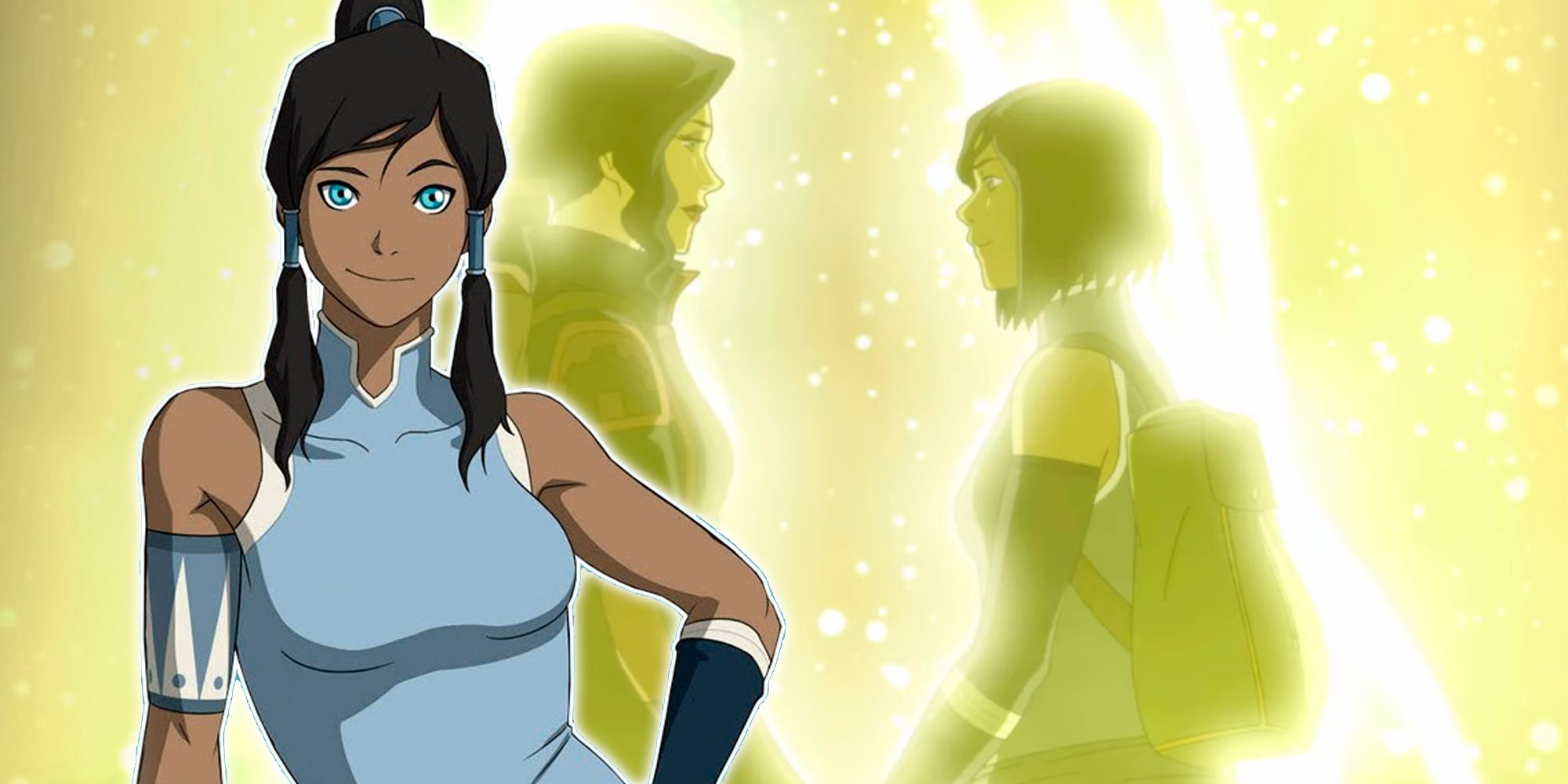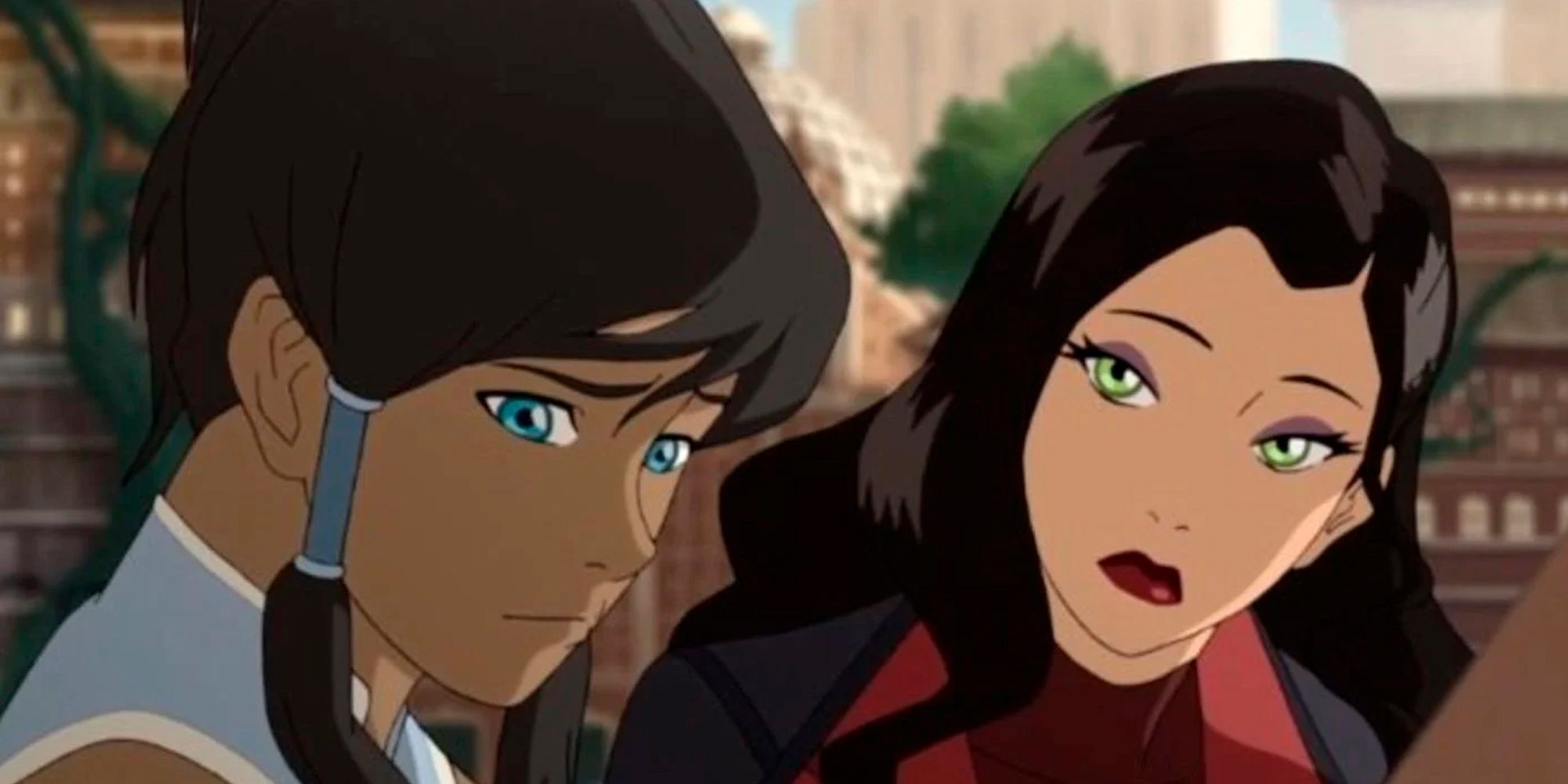
At the end of The Legend of Korra, Asami and Korra decide to go on a vacation together in the Spirit World - but they specifically didn't kiss. The last shot of the show has the two girls holding hands and smiling as they step into the portal, in a scene that is reminiscent of Aang and Katara at the end of Avatar: The Last Airbender. However, although there are romantic undertones to Asami and Korra’s relationship, they never shared an onscreen kiss nor declared their feelings.
When she was first introduced in The Legend of Korra, Asami was Mako’s girlfriend and Korra’s romantic rival. At first, she and Korra were intimidated by each other’s presence, since Korra also had a crush on Mako. Eventually, they became friends and Asami joined Team Avatar, turning into an essential part of the group. After the events of season 2, they grew even closer, with Asami helping Korra recover from mercury poisoning and Korra sending her letters during the three years she spent away from Republic City. Their romantic feelings for each other are never explicitly stated during the show, but the sequel comics reveal Asami and Korra started dating, officially.
Although The Legend of Korra and Avatar: The Last Airbender were animated TV series made for children, both shows explored complex and mature themes during their runs. War, death, the destruction of entire nations, prison camps, kidnappings, violence, and prejudices were a few of the topics discussed in many episodes and always with great care. However, certain things were deemed too dark or mature to be explicitly shown. For example, Jet’s death in Avatar's season 2 was left vague on purpose due to the show's target audience. The network, Nickelodeon, wouldn’t allow creators Michael Dante DiMartino and Bryan Konietzo to show outright the character had died.

In the case of Asami and Korra, it seems back then Nickelodeon considered same-sex relationships too mature for young audiences. In a post made in 2014 on his personal Tumblr account, creator Bryan Konietzko explained the plan was always to have Asami and Korra fall in love. Still, they also were aware of the unwritten rules about showing same-sex relationships in shows for kids, and thus, only alluded to the character’s feelings for each other. When the time came to animate the ending of The Legend of Korra, they got confirmation from Nickelodeon that there was a limit to how much they could portray. Apparently, at that time, two women kissing would cross the line. Konietzko admits that the scene where they hold hands falls short of a victory for queer representation but might inch things forward.
Six years later, it does appear that Korra helped break the glass ceiling somewhat. Queer representation in western animated cartoons has improved considerably, with shows like She-Ra and the Princesses of Power, Adventure Time, Harley Quinn, and Steven Universe featuring confirmed and onscreen LGBTQ+ characters and relationships.
from ScreenRant - Feed https://ift.tt/326HjAO

No comments: